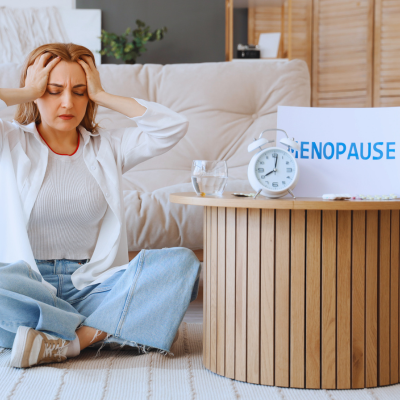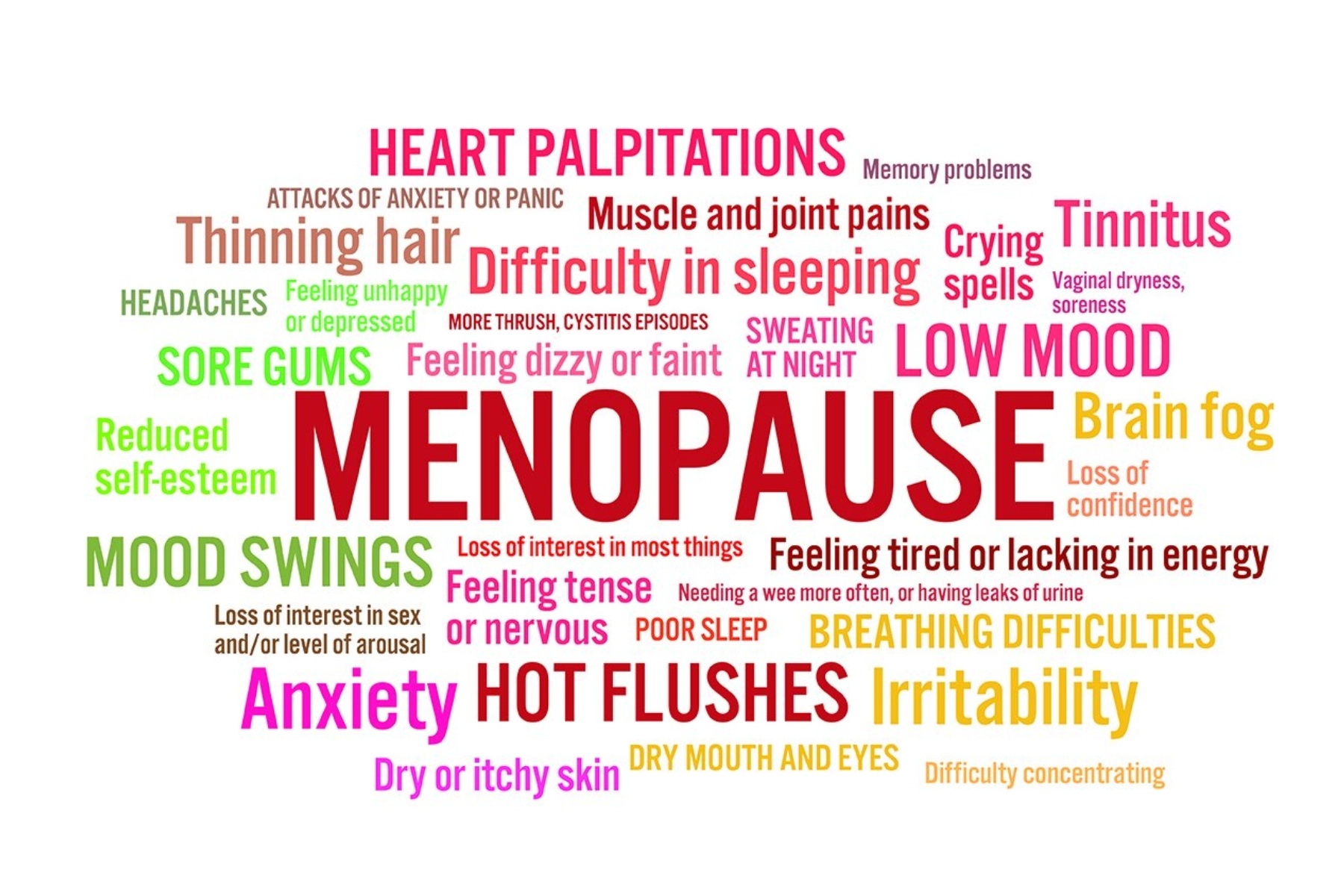Lets face it, menopause is often treated as something distant and irrelevant when, in reality, understanding it early can empower you to support others, prepare for the future, and challenge the silence that encompasses women's health to this day.
"When you know better you do better," Maya Angelou
By understanding the role hormones play and how they impact our health, we can better navigate different stages of our lives. Hormones impact our physical and mental health and they can fluctuate throughout our life due to everyday issues like stress and tiredness and through bigger life changes: Puberty, Pregnancy and Menopause.

Fluctuating and declining hormones can result in debilitating symptoms like anxiety, brain fog and low mood which can impact our work and home life. This is why it is so important that we learn how to optimise our hormone health, manage symptoms if they occur and how to support others now and in the future.
In this blog I am going to focus on the menopause transition because I believe if more young women understand the impact menopause CAN have and what they CAN do to future proof themselves, we will retain more senior women in the work force and help close the gender pay gap.

The report 'Menopause and the Workplace' by the Fawcett Society found that:
- One in ten women who worked during the menopause have left a job due to their symptoms
- Almost half of women haven’t approached their GP’s and three in ten have seen delays in diagnosis
Whilst menopause awareness have improved over the last few years, driven by high profile campaigners like Davina McCall, there is still a lot to be done. We need to make sure that people realise menopause symptoms often occur before 51, that women may still be having periods, that many women won’t experience the ‘expected’ hot flushes and night sweats and that there are many different symptoms and no two women will experience the same. We also need to recognise that not all GPs are as informed as they could be about menopause and hormones.
So what exactly is Menopause?
"Menopause is a life transition that everyone with ovaries will go through"
Kathy Abernethy, Senior Menopause Nurse, ex Chair British Menopause Society
The definition of Menopause is the ceasing of menstruation. It’s the stage in a woman’s life when periods stop due to the natural decline of the sex hormones (oestrogen, progesterone, testosterone) and eggs are no longer produced by the ovaries. While it commonly happens between the ages of 45 and 55, menopause can occur earlier due to various factors, including surgery, medical treatments, or genetic predisposition. Symptoms can also start much earlier (sometimes up to seven or even 15 years earlier) due to fluctuating hormones and this stage is known as Perimenopause. A woman is defined as Post Menopause after 12 months of no periods.
In summary:
Perimenopause = Fluctuating hormones, irregular periods, menopause symptoms
Menopause = Periods stop
Post menopause = No periods for 1 year
It is often in the Perimenopause when oestrogen levels, in particular, fluctuate that symptoms can be most bothersome. Some women may only be in their early forties or even in their thirties and still having periods, which is why menopause is often misdiagnosed as depression. The reason why these hormones can have such an impact on our mental and physical health is that they are involved in so many of our bodily functions – see the chart below.
Menopause Symptoms
Not everyone will have severe symptoms during menopause - some have moderate symptoms and some sail through this stage. For others, the symptoms can be severe and impact quality of life. There are lots of treatments available including Hormone Replacement Therapy but having a healthy lifestyle can often make all the difference.
There are over 51 different symptoms and these can include: itchy skin, burning tongue, dry eyes, heart palpitations, anxiety, low mood, loss of confidence, brain fog, lack of concentration, achy joints, vaginal dryness, dizziness, night sweats and hot flushes, to name a few!
There is a lot more awareness these days around symptoms and the huge impact 'non-traditional' symptoms like anxiety and brain fog can have on our life. Establishing healthy living principles now so we enter midlife strong in mind and body will help us cope with fluctuating and declining hormones.

My top 5 wellbeing tips your midlife body will thank you for!
1. Establish a good sleep routine most of the time
Sleep is where all the good stuff happens.....in essence our bodies and brains get 'washed' and 'reset'. Sleep is the foundation of good health. Try and go to bed and get up at the same time (certainly in the week!). The general rule is that at age 17 we should be aiming for 8-10 hours of sleep every night. I wouldn't worry about tracking the exact hours but do track how you feel when you wake up. If you're struggling to go to sleep try and put your phone away an hour before bed. Have a bath with magnesium salts which will relax you. Exposing yourself to sunlight within an hour of waking is supposed to be great for balancing circadian rhythms and promotes good sleep.

2. Eat from scratch as much as possible and eat the rainbow
Try and cook from scratch using fresh ingredients as much as possible. It's so easy these days to just order takeaway but actually eating from scratch can be quick and easy too once you master a few quick recipes. Include protein, healthy fats and fresh fruit and veg. Don't get hung up on grams etc. its more about establishing a principle that lays the foundations for good eating habits that you can build on in the future. Here's a sample day plan I follow:
Breakfast: Authentic Greek Yoghurt Full Fat, Granola, Raspberries & Blueberries, Honey, Flaked Almonds
Lunch: Halloumi salad
Dinner: Salmon fillet with teriyaki, roasted sweet potato and broccoli
3. Make movement part of your everyday life
Moving our bodies regularly is so important. The key is consistency. Even doing something everyday for 20 minutes like a brisk walk or pilates session will make a huge difference to your physical and mental health. Exercise doesn't have to be running or going to the gym. It could be dancing in your bedroom to your favourite music, going on a bike ride with friends etc. If we build movement into our daily routine now it will make it easier to stick with as we take on more responsibility as we get older.

4. Meet up with people in person regularly
Face to face interaction for young adults is vital particularly as we spend a lot of time on screens. It provides deeper connections and provides a more authentic communication experience compared to online interactions. It allows for the development of important social skills, empathy and a sense of belonging, which are essential for overall well-being and future relationships both personal and in the work place.
5. Try new things - challenge yourself
Challenging yourself to try new things is great for brain health! It expands your horizons and fosters personal growth. New experiences stimulate the brain, boost mood, and can lead to unexpected opportunities and a greater sense of self-worth.
In summary, while menopause can seem like a long way off (and it is!) laying the foundations for a healthy lifestyle now will help you have a 'chill' menopause later on in life. There are also so many treatment options (both hormonal and non hormonal) available these days that we can access if we need to. How much sleep, what we eat and how much we move all impact how we feel day to day and it also sets us up to AGE WELL!!
Holly Gaylor, (age 17) Work Experience 7-11 July 2025




